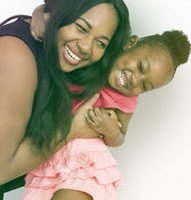Child Custody Evaluations in Divorce Proceedings

When parents cannot agree on custody issues in a divorce, the court has a number of support services available designed to help them make sound decisions regarding their children. Some commonly utilized interventions include courses in co-parenting, problem resolution training (known as parent coordination), mediation services, assistance with mental health issues, monitored child exchanges, and supervised visitation. Sometimes, the need for an in depth look at family dynamics and circumstances warrants a child-custody evaluation.
How is the Evaluation Conducted?
Evaluators may employ a wide range of strategies in order to gather information and form an opinion as to the appropriate custodial arrangements for a child. In general, evaluations include at least some of these components:
- Observations of the child in a range of settings;
- Discussions with both parents;
- Clinical interviews with the child, if old enough;
- Psychological testing of children and/or family members;
- An examination of relevant records, potentially including:
- School documents
- Medical histories;
- Childcare archives.
Beyond the immediate household members, evaluators may wish to speak with other individuals who are familiar with the child, including grandparents and other extended family, teachers, and/or friends.
Preparing for an Evaluation
It can be somewhat daunting to be facing a stranger whose mission it is to evaluate you, as a parent, and the home you’ve created. Regardless of your parenting skills and loving home life, being assessed by someone else’s standards can be off-putting. Nonetheless, experts provide some suggestions as to how to survive unscathed:
- Accommodate the evaluator in every way possible. Your resistance to the intrusion into your life could be misconstrued as your having something to hide.
- Instead of taking the event personally, imagine it’s a job interview. Put on a happy face and put your confidence on display. You’ll be talking about an area in which you have real expertise, after all: your child. So jump into it with enthusiasm, honesty, and a positive outlook.
- Prepare for the interview by gathering relevant documents beforehand.
Understanding What Custody Means in Maryland
Child custody has a couple of different facets in Maryland:
- The parent with whom a child resides is said to have physical custody. One parent may have primary physical custody with visitation opportunities for the other parent, or the parents may share physical custody, meaning that the child resides with each parent at least 35 percent of the time.
- The right to make important decisions related to the child is called legal custody. Those decision include but are not limited to decision relating to a child’s education, religious upbringing, and medical treatment. This, too, can be solely the right of one parent, or it can be shared jointly.
In Maryland, it is possible for one parent to have physical custody, while the other has legal custody.
Dealing with Custody Issues
A custody evaluation is just one of the tools the court uses to determine if parents should have sole or joint custody of a minor child. The court also uses a complex evaluation process, generally referred to as the best interest standard, to make a custody determination. If custody threatens to be a stressful issue in your divorce, by all means get robust, professional legal help. At the Law Office of Hasson D. Barnes, LLC, our experienced divorce attorney and empathetic team has your back. Contact our Baltimore office today for a confidential consultation.
Resources:
apa.org/practice/guidelines/child-custody.aspx
/mdcourts.gov/legalhelp/family/childcustody

